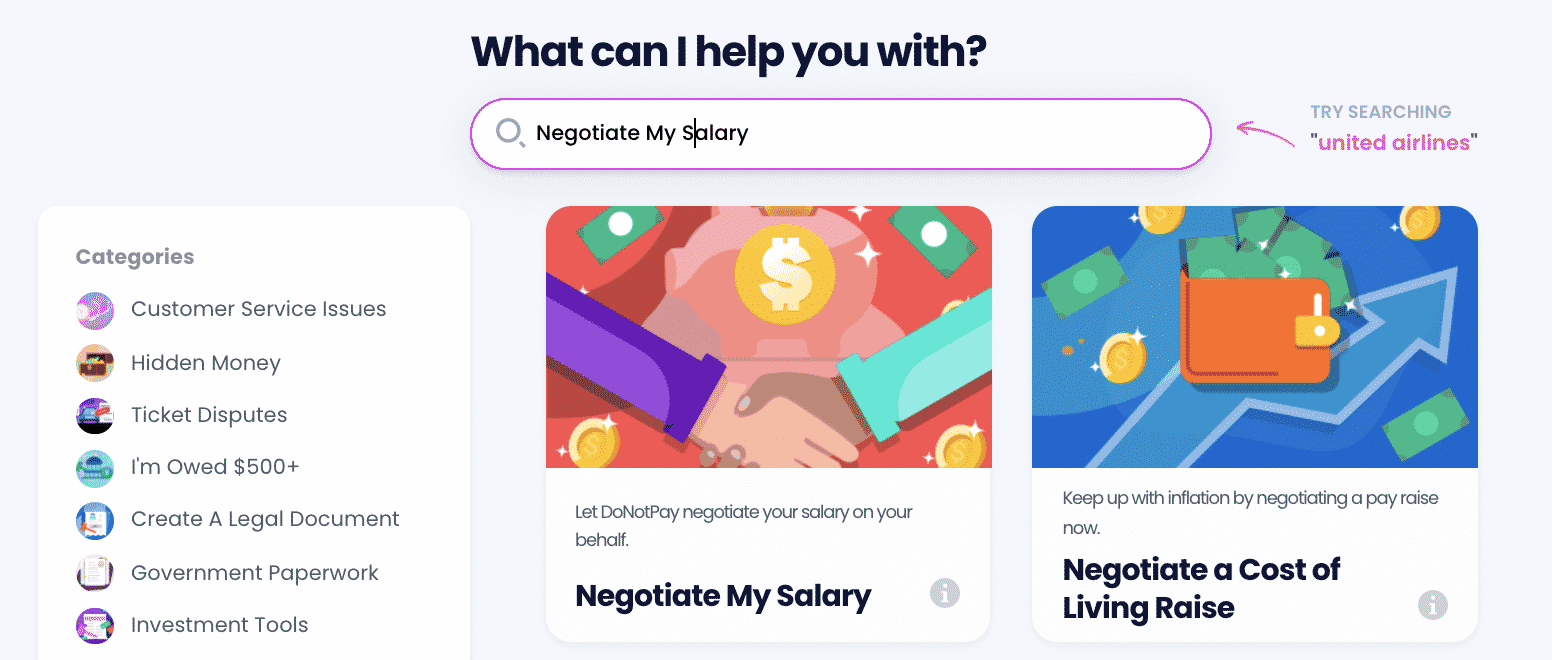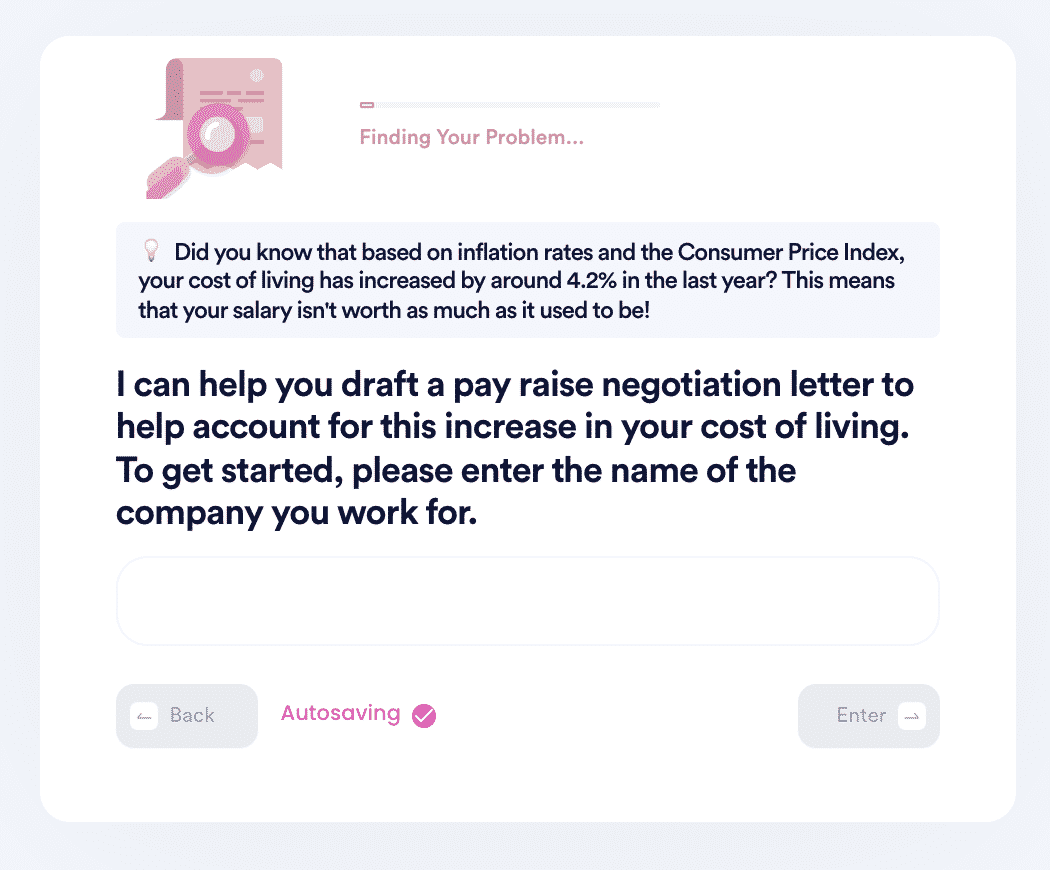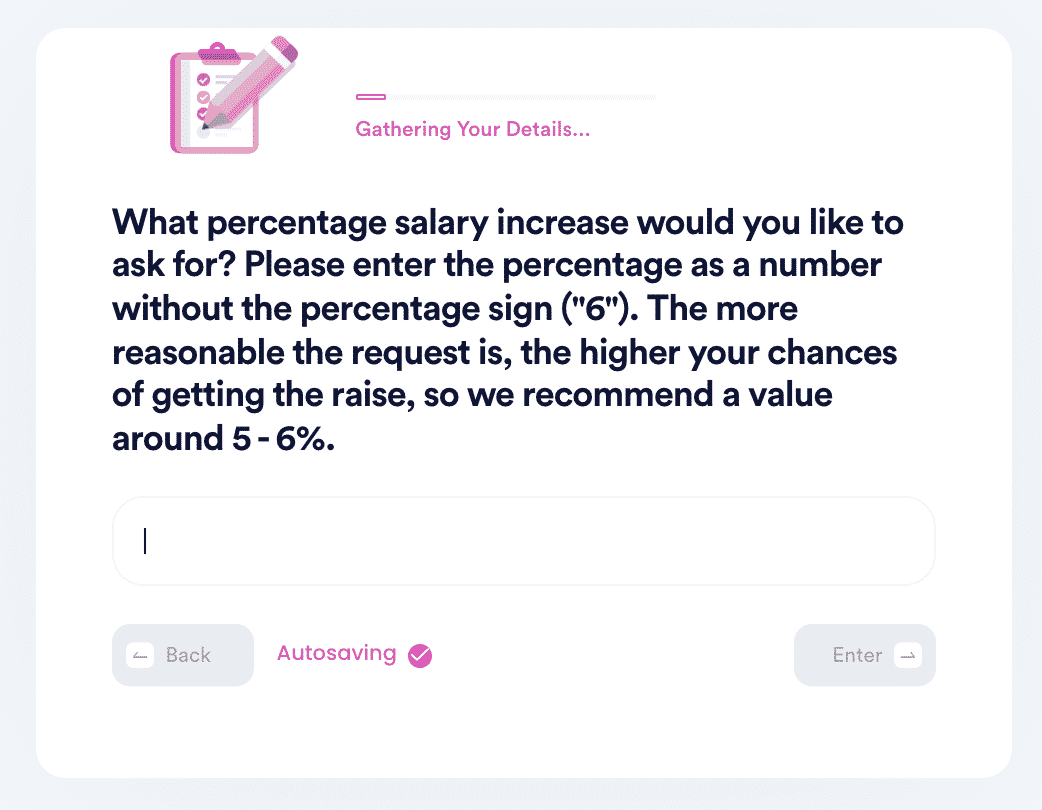How to Negotiate a Raise If You Love Your Job but Get a Better Offer
If you have received a job offer from another organization, this is cause for jubilation. However, you may be anxious about informing your boss of the offer following your victory dance.
Although this is a tricky scenario, you may receive a counteroffer from your current employer if you play your cards well. Whether you accept or decline the external offer, you may be eligible for a raise. DoNotPay is here to assist you in making the best possible choice when
Steps That You Can Take if You Love Your Job but Got a Better Offer
We have curated a simple five-step procedure that you can follow:
| Consider Your Objectives and Develop a Strategy | does not guarantee that you will accept it and quit your current employment. Perhaps the proposal came as a surprise, and you must evaluate it against your current circumstances. Even though you interviewed for the job and are considering accepting it, you may be undecided.
Before informing your supervisor, consider your alternatives and decide what you want to do with your career. Suppose you choose to remain with your current employer. In that case, you may be able to utilize the offer to negotiate a raise or a new internal role, as it establishes your market value. If you accept the offer, the next step is to inform your boss of your intention to resign. |
| Schedule an Appointment With Your Boss | Once you've decided whether to accept the offer or to use it to initiate a discussion with your boss about your market value, it's time to organize a meeting with your supervisor. This should be done in person rather than over the phone, but videoconferencing can be used if you work remotely. |
| Maintain a Cheerful Demeanor | Whether your objective is to get a raise at your current job or leave with a glowing recommendation for your future career, how you explain your new opportunity can set the tone for a pleasant encounter. Even if you're eager to leave your current job and pursue other opportunities, it's critical to avoid coming out as a quitter.
You should avoid criticizing your current employer, coworkers, or boss, as you'll want to keep the door open for a positive reference in the future. Instead of that, please keep your letter straightforward, reminding your boss that you've received an outside job offer and noting whether you intend to accept it or wish to discuss the possibility of a raise. |
| Ensure That You Are Prepared to Accept a Counteroffer | It's likely that once you've informed your boss of your news, they will make a counteroffer to try and retain your services. Your boss may inquire about your new salary and offer you a raise to continue to work in your current position.
Consider the professional objectives you defined in Step 1. If you aimed to leverage the job offer into a raise, you'd be overjoyed to receive a counteroffer. If, on the other hand, you are anxious to advance and seize the new chance, you may choose to reject the counteroffer, even if it is more lucrative than the new position. |
| Convert the Job Offer Into a Pay Increase | If you do not receive a counteroffer but desire to use the external opportunity to improve your current situation, you may need to increase the stakes. Conduct some research on wages for your position and field before talking with your manager.
You might advise your manager about the new company's wage offer, emphasizing that your market value has increased. Inform your manager that you wish to remain with your current employer and would like to learn if they can match the offer you received. If the answer is no, you must weigh your priorities and decide whether or not to stay. Whichever path you take, you may be pleased with the external job offer you received and leverage it in the future to help improve your market value. |
The process can be complicated, particularly if you are still attached to your current place of work, but with DoNotPay, you won't have to worry about anything.
Why Use DoNotPay to Negotiate a Salary Increase
If you are unsure how to create a negotiation letter or establish a dialogue with your firm, DoNotPay can assist you. We'll draft a complete wage negotiation document on your behalf, enabling you to approach your manager confidently and request a raise.
Additionally:
- DoNotPay Is Fast. Our platform has a user-friendly interface that makes it easy to negotiate your salary with just a few steps.
- DoNotPay Is Straightforward. The steps to follow when negotiating your salary are straightforward and we only require you to submit a few details of the new job and we will handle the rest on your behalf.
- DoNotPay Is Successful. Our online AI Consumer Champion rarely makes mistakes and, through this, we can successfully solve multiple issues.
How to Negotiate Your Salary Using DoNotPay
Below are the simple steps to follow:
- Search "negotiate my salary" on DoNotPay.

- Enter the name of your company and the industry you work in, so we can find the right wage statistics for your role.

- Answer a series of questions regarding your qualifications and achievements, relocation expenses, and other job offers if applicable.

- Enter the new base salary you would like to request.

What Else Can DoNotPay Do?
With DoNotPay, you can also learn:
- How to negotiate a salary raise through email
- How often you should get a raise
- When to ask for a raise
- When to negotiate a salary
- How to negotiate a salary
- Ask for a salary raise through email
DoNotPay can also assist you with other services such as:
- Fighting workplace discrimination
- Canceling any subscription
- Reducing property taxes
- Getting Chargebacks and refunds
At DoNotPay, we understand how this may be a confusing time. Reach out to us today to help you make the right decision.


